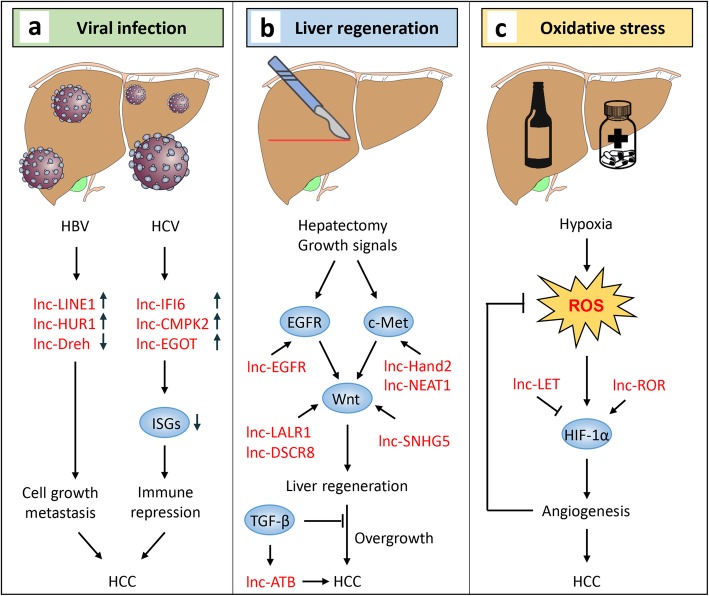Fig. 1.
LncRNAs modulate liver microenvironment and chronic liver diseases. LncRNAs are involved in physiological and pathological processes, including (a) Viral infection and immune repression. Virus-induced lncRNAs are capable of promoting cell proliferation or suppressing host immune response, resulting in chronic infection and HCC formation. b Liver regeneration and outgrowth. In response to hepatectomy, liver is regenerated via activating proliferative signalings. These signalings can also be stimulated by certain lncRNAs independent of tissue loss, leading to liver overgrowth and HCC. c Hypoxic liver injury and oxidative stress. Drug detoxification induces ROS accumulation in liver, which upregulates HIF-1α to facilitate blood vessel formation therefore relief oxidative stress. To some similarities, several lncRNAs also activate HIF-1α to support HCC survival under hypoxic condition. ISGs, IFN-stimulated genes. ROS, reactive oxygen species

